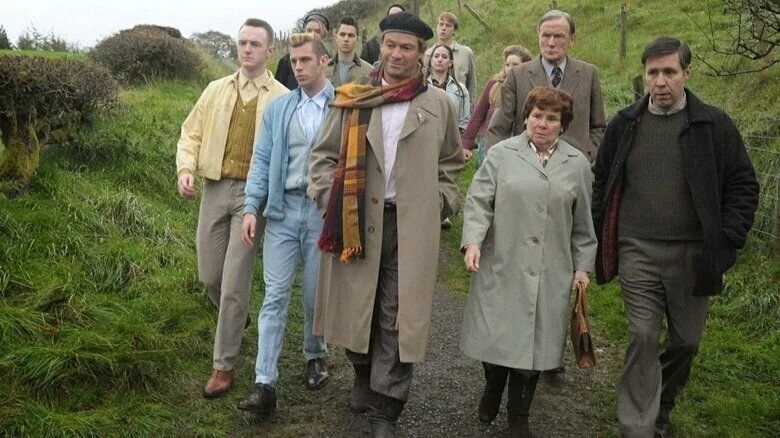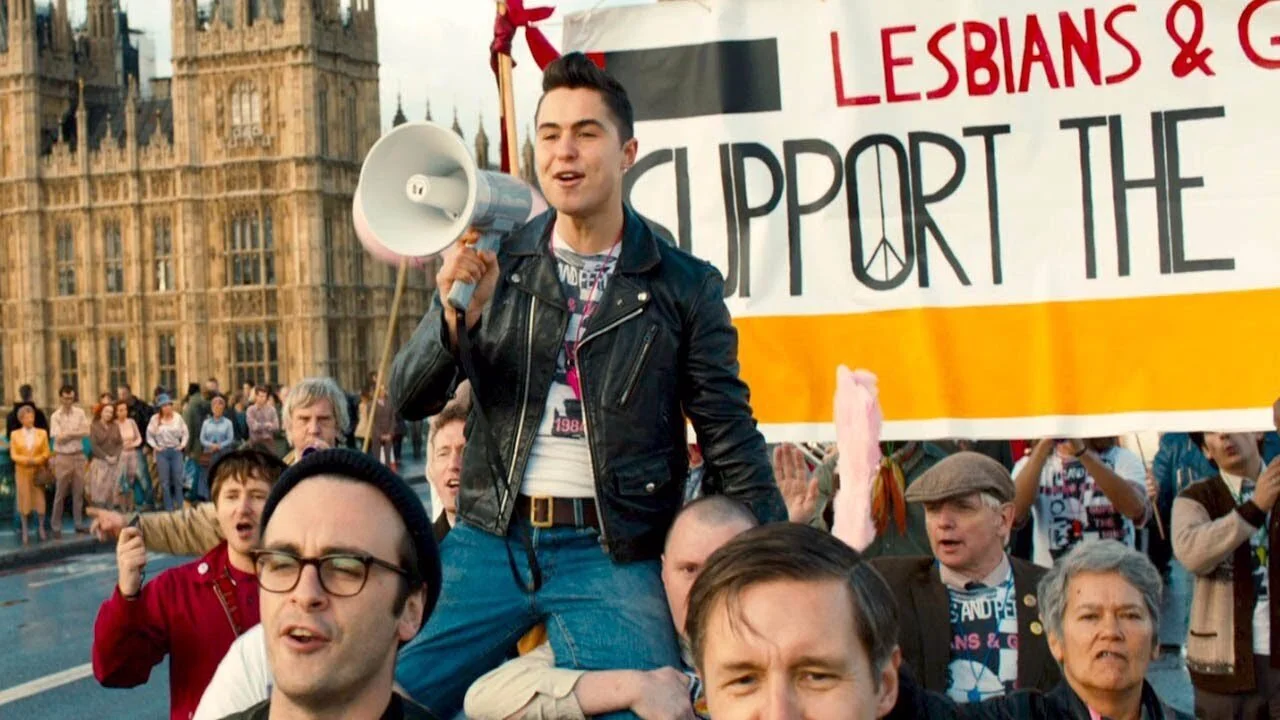Reel Pride: Pride (2014)
Homophobia can take many different forms. It can be violent attacks. It can be systemic injustice. It can be seemingly innocent ignorance. Whatever the shape, homophobia cuts right into the soul, but queer resilience is just as powerful. Through found families and sincere allies, a sense of community and political purpose, queer people can find joy and love amidst oppression. The 2014 film Pride, directed by Matthew Warchus, is such a warm and inviting film, even if it’s about a serious topic. Pride really gets at the value of allyship, of solidarity. It’s funny, and appealing, emotionally satisfying and rewarding. Sure, it can be a little obvious, but it’s an immensely rewarding and enjoyable film.
Based on real life events, Pride centers on a London LGBT activist group who start to become involved in the miners’ strike of 1984, raising awareness and money out of solidarity. Activist Mark Ashton (Ben Schnetzer) founds Lesbians and Gays Support the Miners (LGSM) after hearing about police harassment of the out of work miners. Mark realized that the cops were lenient on the queer community because they were focusing on the miners. He gets his group to canvass for the miners, and offer support to the miners’ union. LGSM receives both acceptance and opposition from various leaders of the miners’ union, with some welcoming the assistance and press while others not wanting help from “perverts.” As the strike continues, the miners start to develop a friendship with LGSM, and experience both the pride and the subjugation of the queer community.
Pride touches upon the idea of oppression and recognizing camaraderie against injustice when you see it. Both the miners and the gays have people in their ranks skeptical of this partnership. Some of the miners are homophobic, who would rather starve than accept help from gay people. And there are some gay characters who don’t want to extend an olive branch to a group that has harassed them in the past. These two disparate groups come together over a common goal, and find strength in numbers. Because at the end of the day, the system wants oppressed people to fight each other—that’s how the system gets away with horrible treatment of people. But look what happens when two opposing side realize they are not so different after all.
I don’t mean to say that Pride is condescending to its audience like Green Book. That film wanted its white audience to feel like they didn’t have to work hard in conquering their own biases. Pride places itself completely in the perspective of its queer characters, and the straight ones have to put in the effort to bridge that gap. I loved how Mark and his friends Steph (Faye Marsay), Jonathan (Dominic West), Gethin (Andrew Scott), and Jeff (Freddie Fox) are unapologetically themselves and bring the miners into their world: activism, partying, dealing with the police. While there is some exploration of LGSM trying to get other queer people to help the miners despite some homophobia within that group, it’s mostly about breaking down that homophobia than excusing it or making concessions for it.
I wrote about another queer activist movie on this column, Robin Campillo’s wrenching, swooning BPM (Beats per Minute). I thought about that movie quite a bit while watching this one. Of course, BPM was far more challenging, both in terms of content and in its filmmaking. It took more risks with editing, music, and camerawork while also piecing together a full 360-degree view of ACTUP. Pride on the other hand feels very much a crowd-pleaser, with fun songs on the soundtrack and some wacky laughs. The character work is just as strong, both with the actors playing LGSM members and the likes of Imelda Staunton, Bill Nighy, Paddy Considine, and Jessica Gunning as members of the miners’ union. The impassioned pleas, the easy friendship, the drunken antics—all feel natural and engaging. Matthew Warchus doesn’t shy away from infighting either, but this film goes down easier than BPM (not a slight—the two films have very different goals).
It’s important to tell these stories, to place queer characters at the center of them, and to pitch them to a mainstream audience. Pride is emotionally effective, without being condescending. The filmmaking is straightforward, though I did enjoy Tat Radcliffe’s immediate cinematography and the costume design by Charlotte Walter. Some queer films have been criticized as being “for straight people.” These are movies where straight audiences can walk away feeling moved and having learned a lesson. Pride does play into that, admittedly. I don’t necessarily think that’s a bad thing, if the movie does it right like Pride does. It’s not only a very charming, effective film and one that gives its queer characters the center stage as agents of change.














